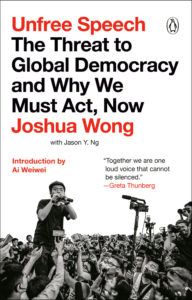Akram Keram, a program officer on China at the National Endowment for Democracy, testified on Hong Kong’s struggle for democracy before the Canadian House of Commons Special Committee on Canada-China Relations. Read remarks & watch the video. https://t.co/ilOnTs3tYI
— NEDemocracy (@NEDemocracy) August 21, 2020
China’s Communist Party bosses and their apologists love to play up China’s exceptionalism. They call authoritarianism a reflection of China’s vast size, its poverty, its history or even its collectivist, Confucian culture. Such excuses do not work as well in Hong Kong. A modern, remarkably open world city, its hybrid culture includes many familiar, Western-style freedoms. That legibility makes its fate unusually important in shaping foreign perceptions of China, The Economist observes.
As a prominent journalist prepared to leave Hong Kong, her host quickly dispensed with the usual pleasantries.
 Hong Kong was the designated subject of our discourse, and the tone was more insistent than usual. As my host described the protesters as traitors, the United States became central to the argument: Washington was acting as the Black Hand, recalls Jane Perlez, former correspondent and Beijing Bureau Chief for The New York Times from 2012 to 2019.
Hong Kong was the designated subject of our discourse, and the tone was more insistent than usual. As my host described the protesters as traitors, the United States became central to the argument: Washington was acting as the Black Hand, recalls Jane Perlez, former correspondent and Beijing Bureau Chief for The New York Times from 2012 to 2019.
More specifically: “Allen Weinstein is responsible.” I knew about Weinstein from a book he wrote in 1978 that set out to prove with newly disclosed documents that Alger Hiss was a Soviet spy. “But Weinstein is dead,” I replied. The official retorted that Weinstein had founded the National Endowment for Democracy in 1983 and insisted that the NED was behind the protests, she writes for Foreign Affairs:
 The idea that Washington was provoking the eruption in Hong Kong through a thinly funded nonprofit seemed far-fetched–something out of a 1950s playbook. But it also sounded like the kind of theory that would be attractive to Chinese Communist Party loyalists. In fact, my lunch partner had just emerged from a long refresher course at the Central Party School, the main ideological training ground for China’s elite, and the subject of how to deal with Hong Kong had been on the curriculum. Some weeks later, another Chinese official offered the same NED conspiracy theory to a friend of mine, a prominent civil servant in the government of one of the United States’ Asian allies. My friend had more fortitude than me and gave the rational response: if Washington had tried to organize the Hong Kong protests, only a handful of people would have shown up.
The idea that Washington was provoking the eruption in Hong Kong through a thinly funded nonprofit seemed far-fetched–something out of a 1950s playbook. But it also sounded like the kind of theory that would be attractive to Chinese Communist Party loyalists. In fact, my lunch partner had just emerged from a long refresher course at the Central Party School, the main ideological training ground for China’s elite, and the subject of how to deal with Hong Kong had been on the curriculum. Some weeks later, another Chinese official offered the same NED conspiracy theory to a friend of mine, a prominent civil servant in the government of one of the United States’ Asian allies. My friend had more fortitude than me and gave the rational response: if Washington had tried to organize the Hong Kong protests, only a handful of people would have shown up.
By blaming Washington, Beijing was eliding its own responsibility for the political unrest, which was provoked by the creeping chokehold that China’s leader, Xi Jinping, had imposed on Hong Kong in the previous five years, she writes in a review of City on Fire: The Fight for Hong Kong BY ANTONY DAPIRAN, and Unfree Speech: The Threat to Global Democracy and Why We Must Act, Now BY JOSHUA WONG WITH JASON Y. NG.
China’s rulers will get away with crushing Hong Kong’s freedoms. But at what cost to their global aspirations? https://t.co/r2atJhptgW
— The Economist (@TheEconomist) August 21, 2020







